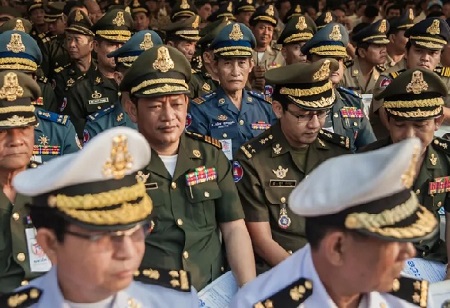The National Centre for Good Governance (NCGG), an autonomous institution under the Indian government, has initiated the third training program on Public Policy and Governance for 38 Civil Servants from Cambodia. Running from January 8th to January 19th, 2024, the two-week program aligns with Prime Minister Narendra Modi’s ‘Neighbourhood First’ policy, emphasizing the enhancement of bilateral relations and regional cooperation with neighbouring nations. The opening session, led by Shri V. Srinivas, Director General of NCGG and secretary of the Department of Administrative Reform and Public Grievances (DARPG), focused on the role of technology in fostering citizen-government proximity while ensuring transparency and accountability.
Addressing the forthcoming administrative reforms, he highlighted the digital evolution of government institutions, resulting in the streamlining of service delivery. The discussion delved into service quality benchmarks, digital infrastructure advancements in India, and the positive impact of the central grievance redressal mechanism on reducing backlog and improving service delivery to citizens. Additionally, he elaborated on the central and state service delivery portals, the ten-step administrative reforms, and their transformative impact on the governance landscape in terms of scale, scope, and learning approaches.
Established in 2014, the National Centre for Good Governance is tasked with the training of civil servants not only from India but also from other nations. Over the years, the centre has effectively provided training to officers from diverse countries, including Bangladesh, Kenya, Tanzania, Tunisia, Gambia, Maldives, Sri Lanka, Afghanistan, Laos, Vietnam, Bhutan, and Myanmar. Since its inception, the Center has been actively involved in various areas such as primary and elementary education, decentralized planning at district and block levels, capacity building of Panchayat Raj Institutions (PRIs), participatory learning and action models, rural development, cooperatives, and public sector management.

